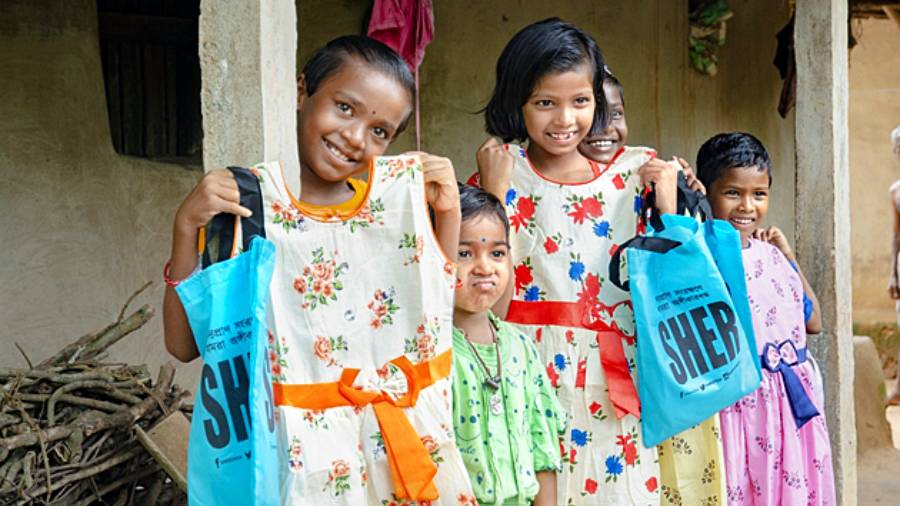Over 3,700 people, mostly children, living in areas prone to human-animal conflict have got new clothes ahead of the festive season.
The areas are in the Sunderbans, Bankura, Paschim Medinipur, Howrah and Hooghly.
Residents of villages such as Kumirmari and Kalidaspur on the fringes of the Sunderbans Tiger Reserve; Jharkhali and Debipur in the South 24-Parganas forest division of the Sunderbans; Pirakata in Paschim Medinipur and Taldangra in Bankura’s Bishnupur are among the recipients.
The nature of human-wildlife conflict is different in these areas. Kumirmari village, in the Basirhat range of the Sunderbans Tiger Reserve, derives its name from crocodile.
Human-wildlife conflict in the mangroves needs no introduction. The loss of livelihood because of the pandemic has forced many people living on the fringes to enter the forests for fishing and to collect firewood. Elephants from Jharkhand’s Dalma forests frequently march into villages in Paschim Medinipur and Bankura, destroying crops and occasionally killing humans. The jumbos get killed as well, after coming in contact with live wires set up as death traps to protect the agricultural produce.
Multiple herds of elephants are roaming the forests of Paschim Medinipur at the moment, said forest officials.
In Howrah and Hooghly, the conflict is usually between humans and “lesser-known” species like fishing cats, civet cats and snakes.
The drive is an attempt at inclusive conservation management, said Joydip Kundu of the Society for Heritage & Ecological Research (SHER), an NGO that works to reduce human-wildlife conflict and is behind the project.
The drive is being conducted in collaboration with the forest department in phases. The recipients have been identified with the help of the joint forest management committees.
“We are trying to strengthen the bridge between the forest field staff and residents in these high-voltage conflict areas,” said Kundu. The project is in its seventh year, he said. Four educational institutes in Kolkata, individual donors and clubs have collaborated with SHER in this project.
“The aim is to win the trust of the local population. We are trying to make them a part of the festivities. In turn, we expect them to be part of our conservation efforts,” said Kundu.
